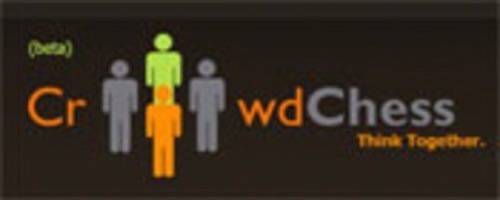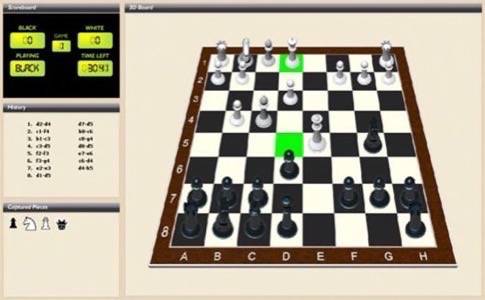In August we wrote about Stan Oleynick, an Internet developer who was selling the rights to his name to finance a web project. At the time, his top bid was $16,000. Now, it’s $25,500 (and he’s actually only received one new bid since we wrote about his interesting, if a little wacky, idea). That’s still well off his goal of $250,000. But Stan still has 3 days to attract bidders, and now they might have a bit more incentive to pony up the big bucks.

Along with the rights to give Stan his new name, the winning bidder will also receive a 10% stake in the web company he is attempting to launch. When we last wrote about Stan, his web project was stil under wraps, though he promised it would be revolutionary. This week it was finally revealed: the winner of Stan’s name will also become a shareholder in CrowdChess.
As the name would suggest, CrowdChess is a crowdsourced version of chess. Teams made up of hundreds or thousands of players compete against one another by voting for the best move (from a list of choices suggested by the crowd). Each team has one hour to complete their voting and make a move. It’s an intriguing idea, and would be an interesting test of crowd wisdom theory to see if a large group of average Joes playing chess as a team could beat a grandmaster or an IBM supercomputer.

But there are some potential pitfalls with the idea. First, it may just be too boring to attract many users. I enjoy a good game a chess, but one that can only advance 1 turn per hour probably wouldn’t hold my interest. Only the most die-hard chess fans (those who play by mail, for example) are likely to find joy in a slow-as-molasses crowdsourced game. And if the crowd consistently picks bad moves, then perhaps even the most die-hard chessheads could be turned away. (Of course, crowd wisdom theory would theorize that the crowd will pick mostly good moves.)
Second, what is to stop teams from cheating? One team could theoretically organize a large contingent of people to register on the other side just to throw off the voting and cause the other team to make poor decisions. Certainly that gets less likely the more players you have, but early on at least, the system seems open to potential gaming. Finally, is the voting hidden until a move is chosen? I wasn’t able to test this out as I couldn’t get CrowdChess to email me my account verification, but if results are shown in real-time during the voting process (as they are on other crowdsourcing sites, such as Digg), that would likely influence the outcome and tarnish the results.
Once the site reaches critical mass (if it does), and has a large number of concurrent users at all times, I would suggest launching a non-voting reliant version that instead shows everyone the same chess board and asks them to choose the next move — the move that is chosen the most gets played. That would eliminate some of the problems above and would allow the “vote” time to be cut significantly.
Conclusion
So is this the revolutionary project Stan Oleynick promised us in August? Currently, no, it’s rather mundane. But if he can prove that a crowd of a chess players can take down Gary Kasparov — well, he can probably book his appearance on the Today Show after that one…
If Stan really wants to make a sticky site that keeps people coming back, he should probably also set up a general chess room where people can play regular, one-on-one games with each other. An hour is a long time to way between moves, and a side game to bone up on chess skills and pass the time would certainly make the site more useful, more social, and more fun. Chess is currently the second most played game at Yahoo! Games, so there is certainly a market for it.

















